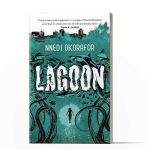
Ghana Must Go
NGN17,760
*Ghana must go*
Kweku Sai passed away. He was a famous surgeon and an unsuccessful spouse who passed away abruptly at dawn outside his suburban Accra home. The news of Kweku’s passing causes a stir in the entire world and brings his family back together. Their tale is told in Ghana Must Go. Ghana Must Go is a testimonial to the transformative power of unconditional love from a first novelist of tremendous skill. It is electric, exciting, and exquisitely created.
Ghana Must Go beautifully traces the Sais’ winding path toward one another through space and time. Kweku’s children assemble in Ghana at their mysterious mother’s new house after his passing. Each of the family members—the oldest son and his wife, the enigmatic twins, who are now young women, and the infant sister—carries his own set of mysteries. When they come together, the tale of how they split apart is revealed: the shattered hearts, the lies told, and the atrocities committed in the name of love. Each person is fragmented and alone as they negotiate their agony, believing that what has been lost is irretrievably gone. However, in Ghana, a new path and a new family are starting to take shape.
Ghana Must Go explores the significance of our origins to who we are while also painting an image of a contemporary family. Ghana Must Go explains that the truths we tell can heal the wounds we hide in a grand narrative that takes us from Accra to Lagos to London to New York.
*About author*
Taiye Selasi exudes and enjoys a great deal of independence. This is due in part to the fact that she is comfortable juggling many jobs, languages, locations, and people, as well as the fact that she straddles paradoxes without difficulty. Her intriguing and contentious essay about “Afropolitans,” a new generation of emigrants with ties to the African continent, marked her literary debut in 2005. Discussions on this piece were heated. In addition to becoming a theory, an identity, and a brand, the phrase “Afropolitan” has also become widely used.
Eight years later, Selasi published Ghana Must Go, but her article had already presciently cut through many of the harmful identity and microaggression discussions that would soon become public. With her theories on multi-locality, Selasi had already rendered the infuriating inquiry “where are you from?” irrelevant. She had also done away with restrictions that demanded intellectuals, feminists, and authors should somehow withdraw from what some people consider as frivolities with her brazen embracing of beauty and fashion.















Reviews
There are no reviews yet.